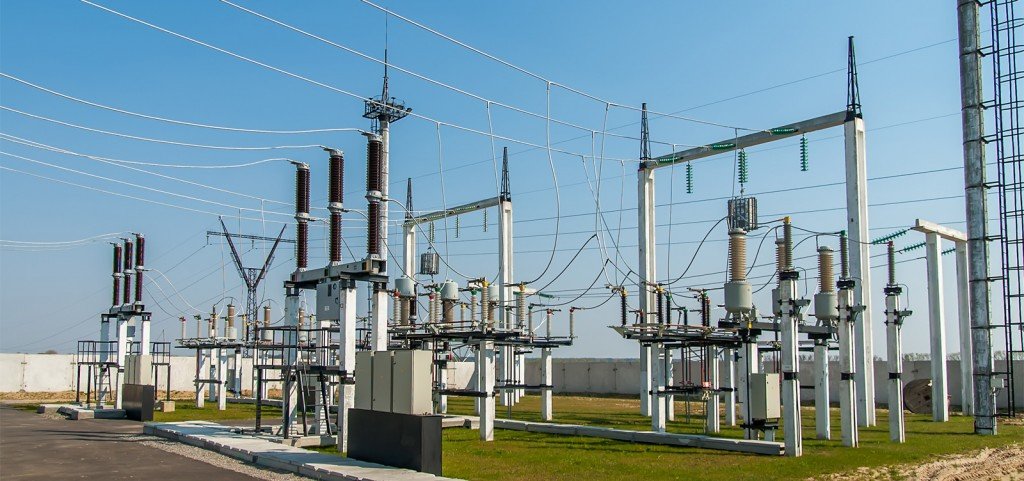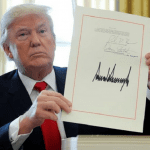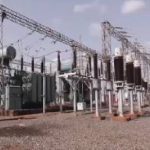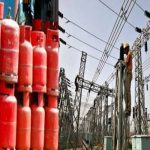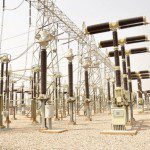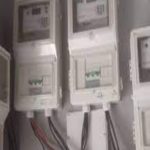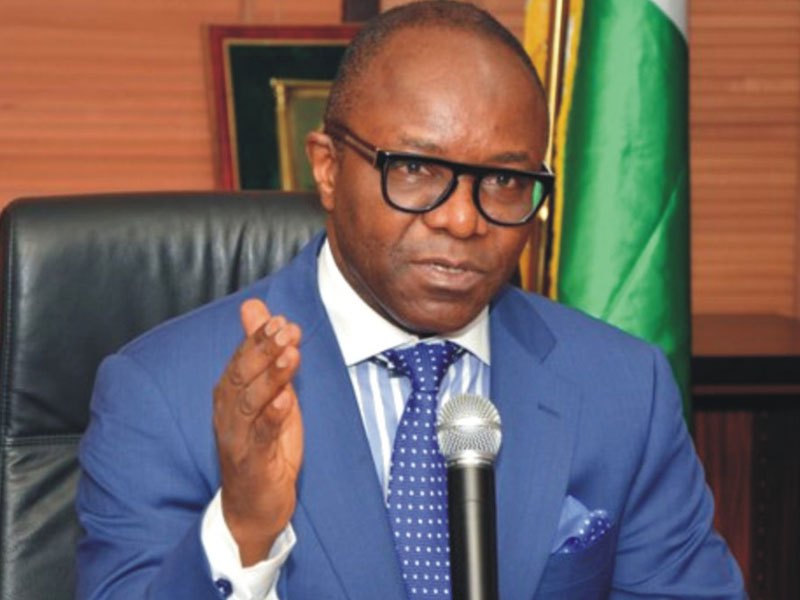MOUNTING DEBT, fuelled by the absence of a fair price for electricity, has forced Nigeria’s government to intervene in a crisis that threatens the gains achieved in the reformation of its power sector.
Landmark reforms passed in 2014 permitted private sector players to engage in power generation and distribution. But this has not completely resolved Nigeria’s power supply problems. The government has failed to keep its end of the bargain it agreed with operators.
The problem is compounded by the poor state of Nigeria’s power infrastructure and market, which investors did not seem to appreciate fully before taking over the assets. A key pillar of the privatisation agreement was the commitment by the government to set a price that would allow operators to earn a fair return on their investment. However, it has failed to set a tariff that reflects the cost of production.
The government has moved twice to increase the tariff, but neither attempt was successful. It backtracked on the first rate hike it announced, and the second increase was halted by a court ruling stating that the legal procedure for increasing the tariff had not been followed.
MOUNTING DEBT, fuelled by the absence of a fair price for electricity, has forced Nigeria’s government to intervene in a crisis that threatens the gains achieved in the reformation of its power sector.
Landmark reforms passed in 2014 permitted private sector players to engage in power generation and distribution. But this has not completely resolved Nigeria’s power supply problems. The government has failed to keep its end of the bargain it agreed with operators.
The problem is compounded by the poor state of Nigeria’s power infrastructure and market, which investors did not seem to appreciate fully before taking over the assets. A key pillar of the privatisation agreement was the commitment by the government to set a price that would allow operators to earn a fair return on their investment. However, it has failed to set a tariff that reflects the cost of production.
The government has moved twice to increase the tariff, but neither attempt was successful. It backtracked on the first rate hike it announced, and the second increase was halted by a court ruling stating that the legal procedure for increasing the tariff had not been followed.
MOUNTING DEBT, fuelled by the absence of a fair price for electricity, has forced Nigeria’s government to intervene in a crisis that threatens the gains achieved in the reformation of its power sector.
Landmark reforms passed in 2014 permitted private sector players to engage in power generation and distribution. But this has not completely resolved Nigeria’s power supply problems. The government has failed to keep its end of the bargain it agreed with operators.
The problem is compounded by the poor state of Nigeria’s power infrastructure and market, which investors did not seem to appreciate fully before taking over the assets. A key pillar of the privatisation agreement was the commitment by the government to set a price that would allow operators to earn a fair return on their investment. However, it has failed to set a tariff that reflects the cost of production.
The government has moved twice to increase the tariff, but neither attempt was successful. It backtracked on the first rate hike it announced, and the second increase was halted by a court ruling stating that the legal procedure for increasing the tariff had not been followed.
MOUNTING DEBT, fuelled by the absence of a fair price for electricity, has forced Nigeria’s government to intervene in a crisis that threatens the gains achieved in the reformation of its power sector.
Landmark reforms passed in 2014 permitted private sector players to engage in power generation and distribution. But this has not completely resolved Nigeria’s power supply problems. The government has failed to keep its end of the bargain it agreed with operators.
The problem is compounded by the poor state of Nigeria’s power infrastructure and market, which investors did not seem to appreciate fully before taking over the assets. A key pillar of the privatisation agreement was the commitment by the government to set a price that would allow operators to earn a fair return on their investment. However, it has failed to set a tariff that reflects the cost of production.
The government has moved twice to increase the tariff, but neither attempt was successful. It backtracked on the first rate hike it announced, and the second increase was halted by a court ruling stating that the legal procedure for increasing the tariff had not been followed.
MOUNTING DEBT, fuelled by the absence of a fair price for electricity, has forced Nigeria’s government to intervene in a crisis that threatens the gains achieved in the reformation of its power sector.
Landmark reforms passed in 2014 permitted private sector players to engage in power generation and distribution. But this has not completely resolved Nigeria’s power supply problems. The government has failed to keep its end of the bargain it agreed with operators.
The problem is compounded by the poor state of Nigeria’s power infrastructure and market, which investors did not seem to appreciate fully before taking over the assets. A key pillar of the privatisation agreement was the commitment by the government to set a price that would allow operators to earn a fair return on their investment. However, it has failed to set a tariff that reflects the cost of production.
The government has moved twice to increase the tariff, but neither attempt was successful. It backtracked on the first rate hike it announced, and the second increase was halted by a court ruling stating that the legal procedure for increasing the tariff had not been followed.
MOUNTING DEBT, fuelled by the absence of a fair price for electricity, has forced Nigeria’s government to intervene in a crisis that threatens the gains achieved in the reformation of its power sector.
Landmark reforms passed in 2014 permitted private sector players to engage in power generation and distribution. But this has not completely resolved Nigeria’s power supply problems. The government has failed to keep its end of the bargain it agreed with operators.
The problem is compounded by the poor state of Nigeria’s power infrastructure and market, which investors did not seem to appreciate fully before taking over the assets. A key pillar of the privatisation agreement was the commitment by the government to set a price that would allow operators to earn a fair return on their investment. However, it has failed to set a tariff that reflects the cost of production.
The government has moved twice to increase the tariff, but neither attempt was successful. It backtracked on the first rate hike it announced, and the second increase was halted by a court ruling stating that the legal procedure for increasing the tariff had not been followed.
MOUNTING DEBT, fuelled by the absence of a fair price for electricity, has forced Nigeria’s government to intervene in a crisis that threatens the gains achieved in the reformation of its power sector.
Landmark reforms passed in 2014 permitted private sector players to engage in power generation and distribution. But this has not completely resolved Nigeria’s power supply problems. The government has failed to keep its end of the bargain it agreed with operators.
The problem is compounded by the poor state of Nigeria’s power infrastructure and market, which investors did not seem to appreciate fully before taking over the assets. A key pillar of the privatisation agreement was the commitment by the government to set a price that would allow operators to earn a fair return on their investment. However, it has failed to set a tariff that reflects the cost of production.
The government has moved twice to increase the tariff, but neither attempt was successful. It backtracked on the first rate hike it announced, and the second increase was halted by a court ruling stating that the legal procedure for increasing the tariff had not been followed.
MOUNTING DEBT, fuelled by the absence of a fair price for electricity, has forced Nigeria’s government to intervene in a crisis that threatens the gains achieved in the reformation of its power sector.
Landmark reforms passed in 2014 permitted private sector players to engage in power generation and distribution. But this has not completely resolved Nigeria’s power supply problems. The government has failed to keep its end of the bargain it agreed with operators.
The problem is compounded by the poor state of Nigeria’s power infrastructure and market, which investors did not seem to appreciate fully before taking over the assets. A key pillar of the privatisation agreement was the commitment by the government to set a price that would allow operators to earn a fair return on their investment. However, it has failed to set a tariff that reflects the cost of production.
The government has moved twice to increase the tariff, but neither attempt was successful. It backtracked on the first rate hike it announced, and the second increase was halted by a court ruling stating that the legal procedure for increasing the tariff had not been followed.

